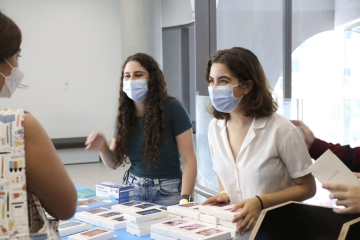Hey, my name is Erin, and I use they/them as my pronouns.
I’d guess that for most of you, this sentence is pretty unfamiliar.
So, I’ll unpack it for you a bit, introduce you to pronouns 101, and provide some helpful tips for being inclusive of trans people within and outside of the classroom.
First: let’s start with the easy bit. My name is Erin. Not that tricky, and I’m sure everyone can understand what this means, so I’ll move on.
Second: I use they/them pronouns. More complicated, but not by much. A pronoun is a word that stands in for the participant in a discourse, or someone or something mentioned elsewhere. They exist to save time and space in conversations, and you’ll be familiar with pronouns such as I, me, you, they, she, he and so on. By stating which pronouns I use, I’m conveying a message to people. I’m saying, “Please understand that I would like for you to use they/them as the pronouns you use to refer to me”. It can definitely be a little tricky at first, and trans people understand that but our pronouns are not optional.
This last bit is really important. If someone tells you that they use a specific set of pronouns, you should try your hardest to use them. If you don’t quite understand what using those specific pronouns entails, ask. Noticing your use of pronouns in speech is something that doesn’t really happen for most people. You’ll make mistakes. Everybody makes mistakes. The key is to correct the mistake then move on. Don’t make a big fuss about it. Just keep going with the conversation.




